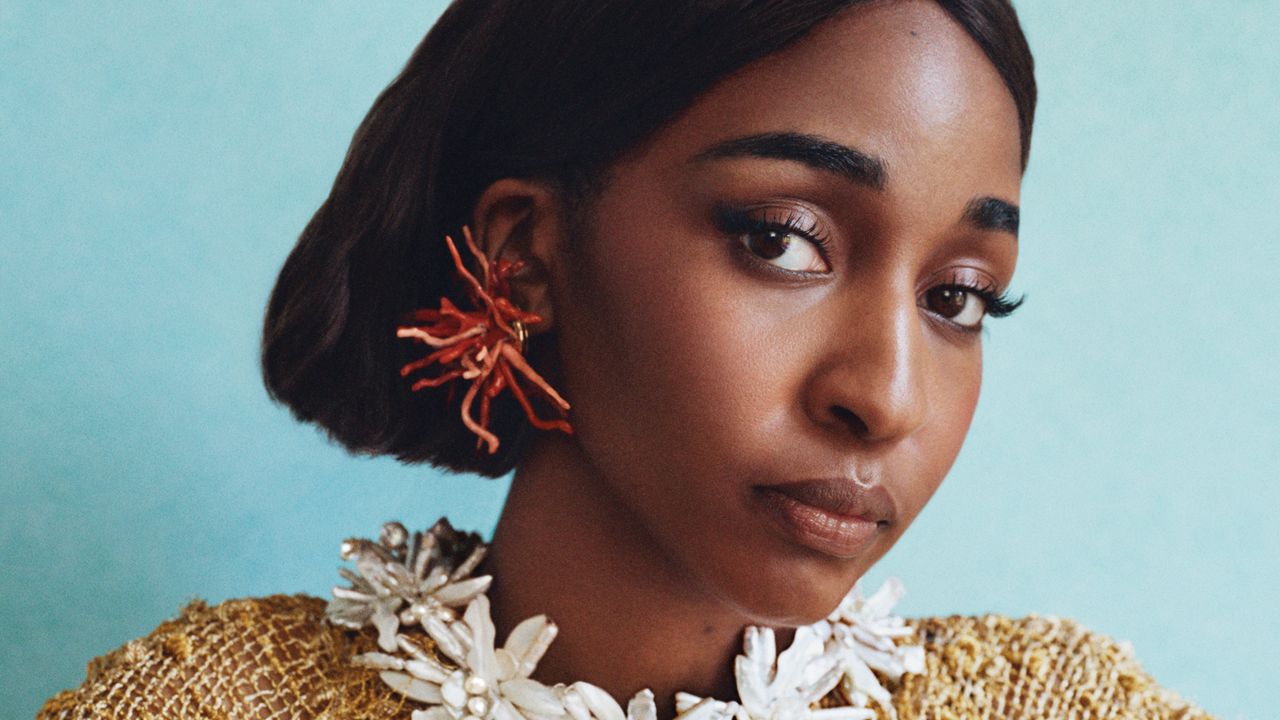The period also forged a close bond between Edebiri and Roberts, who share several of the film’s most emotionally knotty scenes. “I felt we went from relative strangers to friends extremely quickly. It was almost bizarre,” Roberts says in an email. “She is incredible to be around—the way her mind works, the way she expresses herself. She’s tremendously engaging.” (Guadagnino recalls a day when production was stopped for several hours due to a power outage: “I couldn’t work in the editing room, I couldn’t shoot, I couldn’t do anything,” he says. “And then I get a message from Ayo and from Julia saying, ‘Join us. We are at an amusement park.’ ”)
With all that runway laid down, the most difficult day on set for Edebiri involved negotiating a scene that, for obvious reasons, they hadn’t rehearsed much. During a climactic confrontation on campus, Maggie, in a pique of outrage, slaps Alma across the face—something that Roberts insisted Edebiri do for real. “It was horrible,” Edebiri mutters now. “I had to slap literally God’s gift to humanity, Julia Roberts.”
She’d had, by that point, enough conversations with both Roberts and Guadagnino to feel that the outburst was earned, narratively and emotionally. The only thing left to do was to let go a little—a recurring theme during the filmmaking process. “There were moments where—and I’m saying this, really, in a good way—I was being challenged by Luca,” Edebiri says. “He’d be like, ‘I can see you analyzing this, or intellectualizing it, or justifying it. But I think that while Maggie is very intelligent, she leads with her feelings.’ ”
He’d given his actors little viewing assignments, and one of Edebiri’s was Ken Russell’s 1969 film Women in Love; she was to pay special attention to Glenda Jackson as the headstrong, withering, unvictimizable Gudrun. This was a help. “I watched it, and I was like, Oh, maybe people just won’t understand Maggie,” she says. “There’s something really freeing to being like, People might just not like her or might not understand her actions.” In the weeks before the film’s world premiere in Venice—where Edebiri would don an off-white bouclé wool suit and a strapless red dress with winking ruby buttons, both from Chanel—her greatest hope for the film was that people would “meet it with complexity. That it’s not just, like, I really like this. I didn’t like this. I wanted them all to make out.”
The remark reminds me of something Edebiri had said earlier, when we were talking about how fame had changed her relationship to her work. As her audience has grown, the stakes of what she’s doing—whether in stand-up or acting—have changed. “So many artists can become a character to people, or an idea to people,” she’d mused. “And then when something deviates from that idea, then it’s like, Wait, what’s going on? Do we like this?”
That, it would seem, is the space she is sliding into now—one governed, really, by the old improv concept of yes, and…. For example: Yes, Edebiri is developing a movie about Barney, the purple dinosaur (“I think it’s going to be cool and I’m excited for it” is about all she’ll say on the subject at present). She’s also working on a feature with Boyce—her cowriter on “Worms,” one of the standout episodes of The Bear’s fourth season (“I remember, maybe around the pilot or in the first season, having this feeling of, This is a person I would like to work with for the rest of my career,” Boyce tells me of Edebiri)—and she identifies Keke Palmer and Teyana Taylor as people she’d love to do something with at some point.





